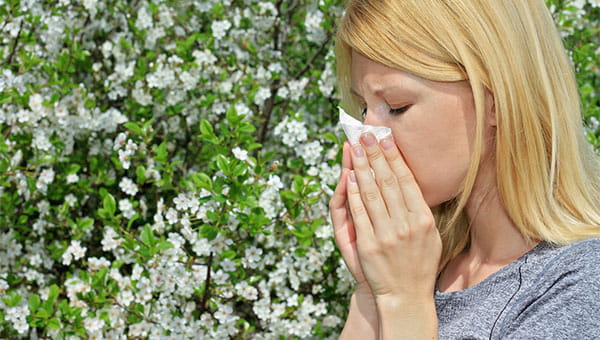Allergies are the result of your immune system responding to pollen, a harmless substance, as a threat to your health. This reaction, according to the U.S. Centers for Disease Control and Prevention, occurs in 20 million adults and 6.1 million children. This reaction is known as seasonal allergies or hay fever.
Allergies can vary in intensity based on a person's sensitivity and their exposure to the plants and pollen growing around them. Even though hay fever isn’t actually a fever, the symptoms of seasonal allergies can be similar to a common cold. These would include:
- Sinus pressure
- Congestion
- Sneezing
- Runny nose
- Coughing
- Watery eyes
While the pollen isn’t something you can control, you do have the ability to lessen the severity of your symptoms.
- Know what triggers your allergies: You can learn about your triggers in a couple different ways. Your primary care physician can recommend allergy testing, so you are aware of your reaction to certain items. You can also keep a journal of instances where your symptoms become more aggressive. Take note of what you ate, where you were, what the weather was like and if you were exposed to any plants.
- Protect yourself: If you are planning on gardening or doing yard work, wear a mask. Use sunglasses so you decrease the chance of pollen getting into your eyes. Avoid outdoor exercise between the hours of 5 and 10 am. Also, make a conscious effort to shower and change clothes at the end of the day. This helps prevent the pollen from getting on the sheets and blankets you sleep with.
- Treat yourself: Check with your doctor to find out which over-the-counter medications are best for you or if you need something stronger. Some over-the-counter remedies include nasal sprays, antihistamines or eye drops. A box of tissues with lotion might not be a bad idea either.
By recognizing your triggers, protecting yourself and treating your symptoms you can help ease the symptoms of allergy season.
For more information on seasonal allergies and other immunological conditions, visit BayCare.org/Services/AllergyImmunology or call 1-800-BayCare (1-800-229-2273) to find a doctor near you.




